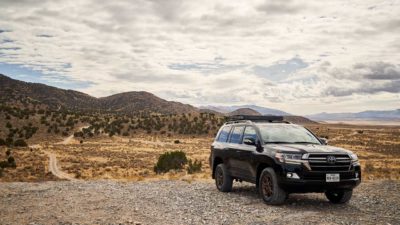Today’s cars are unprecedented. They are designed to perform well on highways but can also handle tough terrains like dirt and mud. And, honestly, what is the point of owning a 4×4 if you never want to go off-roading? But going on an off-road trip is not as simple as it sounds. It is challenging, confusing and can even become intimidating if you are not prepared.
To help you with your off-road adventures, we are going to share a few tips with you today:
Understand Your Vehicle
Your vehicle has a different feature which an important role. Let’s have a look at these:
- Traction control: This is a common feature which comes in most of the 4×4 vehicles. Depending on what the manufacturer had in mind while making the car, the traction control can have different purposes including on/off setting, or a system that is crafted for different traction situations. Traction control is used to maintain traction by limiting slipping. It tells the dashboard how to control wheel spin and then the braking happens accordingly. Since every type of traction control is different, it is recommended to read your owner’s manual
- Locking differentials: Locking differentials is the turning of right and the left wheel simultaneously. When driving on the road, the wheel turns at a moderate pace. When on off-road, you want the wheel to turn on varying speeds. In automatic all-wheel drives, the machine is constantly making changes to adjusting the wheel when it is required. When this happens, there is a risk of traction loss. So, the power is transferred to the wheel which shows the least resistance (which is not able to maintain traction). Locking differentials allow the wheels to spin at a uniform rate, making certain that the power is getting to the wheel which requires most traction.
Do You Need Any Special Equipment?
Tires: The first thing you need to have is a good set of tires that can run different types of surfaces smoothly. A good off-road tire helps you maintain the optimal level of traction between the terrain and the car. Even in off-road tires, you will find a large variety. For instance, mud tires work differently than sand and rock tyres. So, go to a local tire shop or do your research online.
Suspension: Sturdy and robust suspensions are arguably the most crucial element in a car for the off-road trip. It is the part of your car that takes all the bash and abuse from the terrain and prevents it to reach you.
Bumper: Bumpers protect your car from rocks, brushes and other trail objects. People who are going off-road can consider getting a back-side bumper. Many bumpers make it easier to keep a spare tyre in the car which comes in handy when you need to replace it.
Winch: Winches are quite popular among off-roaders. An active recovery system, winch must be used with some skills and after some training. It is extremely important when the car is in a vulnerable position or when the vehicle requires a gradual recovery. One thing to keep in mind regarding winch is never purchased a cheaper one because it can do some real damage if it does not work when needed.
Snorkel: If you plan to take your vehicle through deep water, you are risking the life of your engine as the water might ingest into it. The snorkel can be used to reduce water ingestion which sucks air from a part of the roof.
Be prepared for the worst
An off-road trip can become tough for you. It is essential that you carry some important equipment to deal with any bad situation:
- First Aid Kit: A basic first-aid kit is mandatory
- Seat belt cutter and glass breaker: There can be a few scenarios in which you may have to escape the car by breaking a window or cutting the seat belt
- Fire extinguisher: It doesn’t only look cool; it will also help you prevent fire damage
- Food & water: Carry enough food and water
Summary:
Going on an off-road trip can be a daunting experience if you are not prepared for it. This makes more sense when you are travelling for the first time.
Whether you are driving your own car or opting for tourist car rentals — working on these tips will help you a lot.



